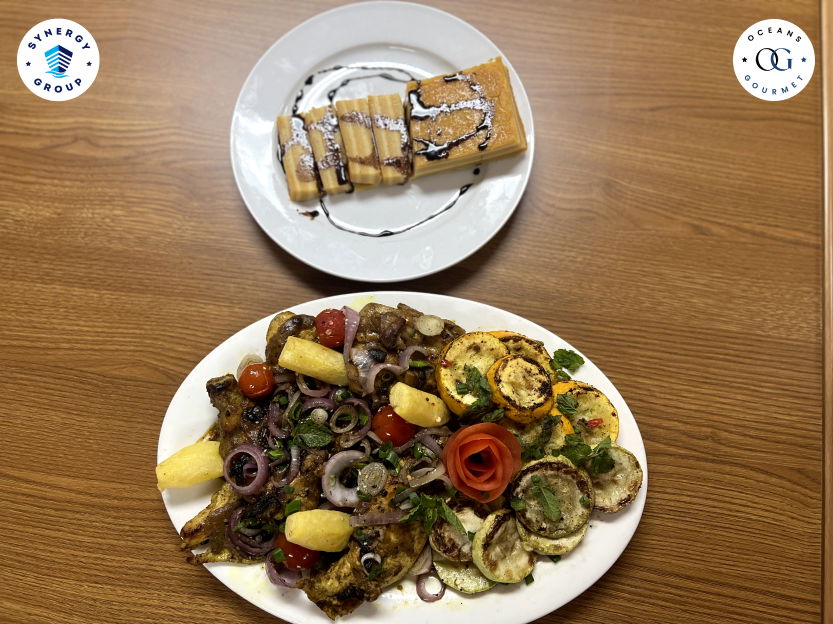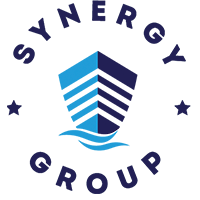I am Isaac Castellino serving on board the vessel “MT Mersey” as Chief Cook. I was born in 1967 and always had an interest in cooking. Since I was little I used to go to work helping with small chores in my uncle’s restaurant. This early experience in cooking was good, and I would create a few dishes for the guests at the restaurant.
After acquiring a reputation in the local area for dazzling dishes, I yearned for more adventure. This led me to complete the required courses to serve as a chef on merchant vessels. My maiden voyage was on the “Marshall Pride” in 1998, and as they say “the rest is history”. I have served on various ships around the globe with crews from a multitude of nations – the epitome of an international chef.
My job is made much easier with efficient and engaging team members such as the GS Ashokkumar Solanki, who was born in 1976 in northern India and is warmly known to admiring seafarers simply as ‘Salanki’. He started working in hospitality over 15 years ago, initially as a chef’s assistant and then honing his skills on fishing vessels before serving on larger ocean-going ships. Together we compliment each other, making a good team.
We try to consistently operate on long voyages within budget with prudent management. Keeping the taste buds of the crew in mind, we have to be agile and creative due to the fact that some locations will not have the ingredients required for dishes my crew are accustomed to.
An average day for us in the galley looks like:
0500 wake up
0600 – 0830 we prepare and create breakfast
0900 – 1000 we take a rest
1000 – 1200 we prepare lunch
1200 – 1500 we take a rest
1500 – 1900 we prepare dinner, then clean and secure the galley.
From about 1930 the curtain closes on my work day until we roll again the following day. Other events are parties and occasions where VIPs might be on board and we must be able to accommodate their taste buds and host them satisfactorily.
Concerning provisions, supplies are usually delivered via small tender boats, as my current vessel is a tanker. Our ship has a provision crane for bulky loads, and after taking it on board the stock it is accounted for, monitored and managed for the duration of the voyage, only topping up with required ingredients if and when necessary. Orders are requested via software well in advance, and the order list is compiled in sync with the Captain.

When dealing with dry goods, we make use of a state-of-the-art provisions store which has ergonomic fixtures and fittings as well as humidity and heat control in order to preserve produce for the duration of the voyage in various climates around the planet.
Many food products and ingredients are preserved chilled or frozen, so we also make use of our numerous fridges, freezers and our innovative cold/freezer room, a really cool place to collect ingredients when sailing in the tropics.
Another way we are able to operate on such distant voyages is good management and administration to reduce wastage and ensure produce is optimal, and checks are carried out on a weekly and monthly basis. This frequency has the benefit of fault-finding before minor issues can become more serious, as well as minimising waste.
Finally, if in doubt I adhere to Company policy and am comforted to know that there is support via email or telephone. I also take advice from the Captain and always try to suggest ideas or improvements whenever I feel it would be the best for the crew.
I do feel sometimes like just taking a day off to enjoy the sunshine, but being a seafarer chef it’s my role and responsibility to serve the ship’s crew. In conclusion, I would advise budding new chefs and ship’s cooks to try their best while cooking food for the crew so they find happiness when having every bite of it and they don’t miss home.
For the Galley Masters competition, I made chicken steak with roasted vegetables, and then Bebinca as a sweet.
My recipe for chicken steak is as follows:
- Chicken breast sliced in half and then tenderised with a steak hammer.
- Add garlic, 1 tsp.
- Salt as required.
- 4-5 peppers.
- Oyster sauce, about 2 tsp.
- Marinate for at least 3 hours.
- After marinating, add olive oil to the pan and fry the chicken for at least 3 mins per side.
- Then add 1 tsp of maida (a refined wheat flour) to the same frying pan and 1 cup of water and simmer until it is light brown in colour. This is brown sauce, and you then add the chicken steak to it.
- It can be served with roasted vegetables or rice (I personally serve it with roasted vegetables).
The recipe for Bebinca is as follows:
- Maida 250 gm.
- 12-13 egg yolks.
- Some fresh coconut juice.
- 1 tsp nutmeg powder.
- Sugar 200 gm.
- Mix your batter well.
- Take 100 grams of caramelised sugar and add it to one side of the batter.
- Brush ghee in the pan and cut layers of the batter – one plain and the other one with caramel.
- Take one layer of plain batter and let it bake, then add the caramel batter over it and let it bake again. The same process is to be followed for as many layers as are needed. Bake the layers individually so it is all well baked. All the layers are to be separately cooked and the order of one plain batter and another mixed with caramel is to be followed.



